
In a business landscape where every customer interaction can make or break a brand, Customer Relationship Management (CRM) has emerged as the ticket to lasting customer engagement and robust growth. This guide will dive into an in-depth exploration of CRM, its key features, and the transformative effect it can have on businesses of all sizes. From enhancing every customer interaction to equipping your sales and marketing team with advanced tools, CRM is the linchpin of contemporary business operations.
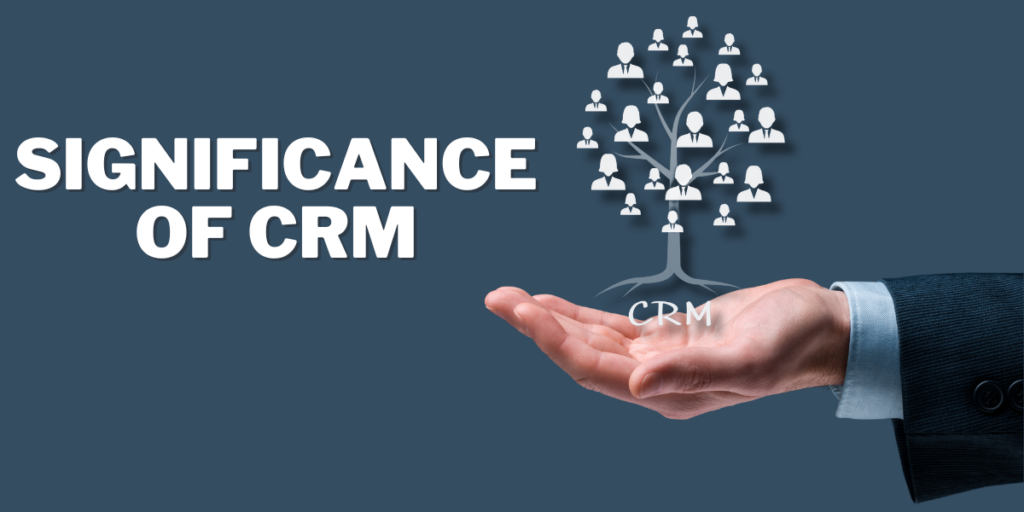
CRM stands for Customer Relationship Management, a term that has become synonymous with the meticulous art of handling all aspects of a company’s engagement with its client. At the heart of CRM is the belief that nurturing customer relationships drives loyalty and growth. With a good CRM system, businesses can maintain a comprehensive customer profile for each individual they serve, laying the groundwork for a personalized customer journey.
CRM software is a management software category that combines a suite of tools, applications, and capabilities designed to streamline the myriad components of Customer relationship management. A CRM system helps businesses manage customer data, track customer interactions, handle contacts, support sales management, automate marketing, and deliver actionable insights.
At the core of CRM is the data it collects and analyzes. From basic contact information to detailed preference histories, CRM data comprises the digital customer profile. This profile becomes the reference point for every customer interaction, ensuring that marketing efforts, sales pitches, and support services are tailored to the individual.
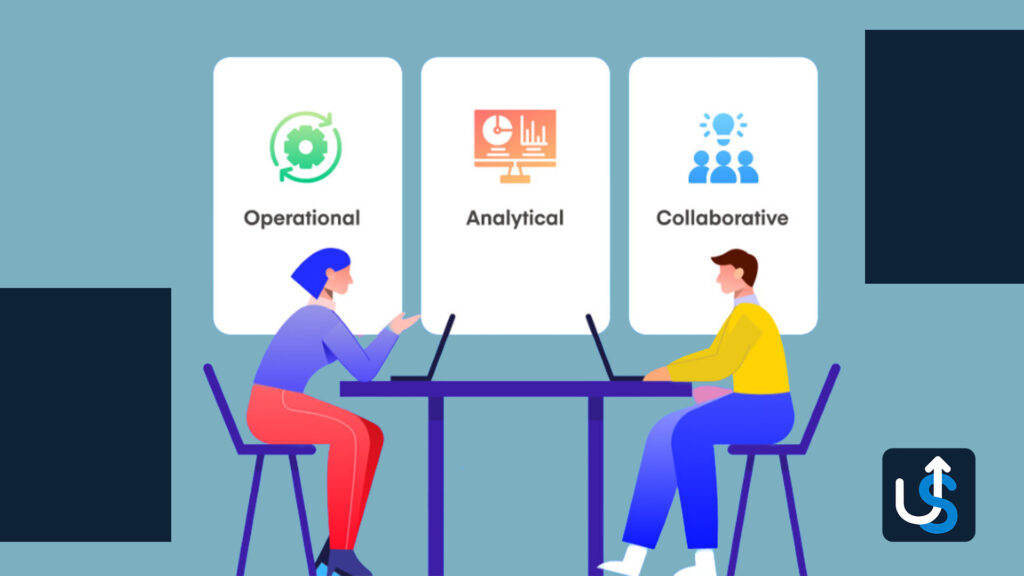
CRM is not a one-size-fits-all solution, let us look at various types of CRM. operational CRM systems focus on automating customer-facing processes; analytical CRM systems are geared towards analyzing customer data to inform business decisions; and collaborative CRM systems aim to enhance communication and cooperation among business units.
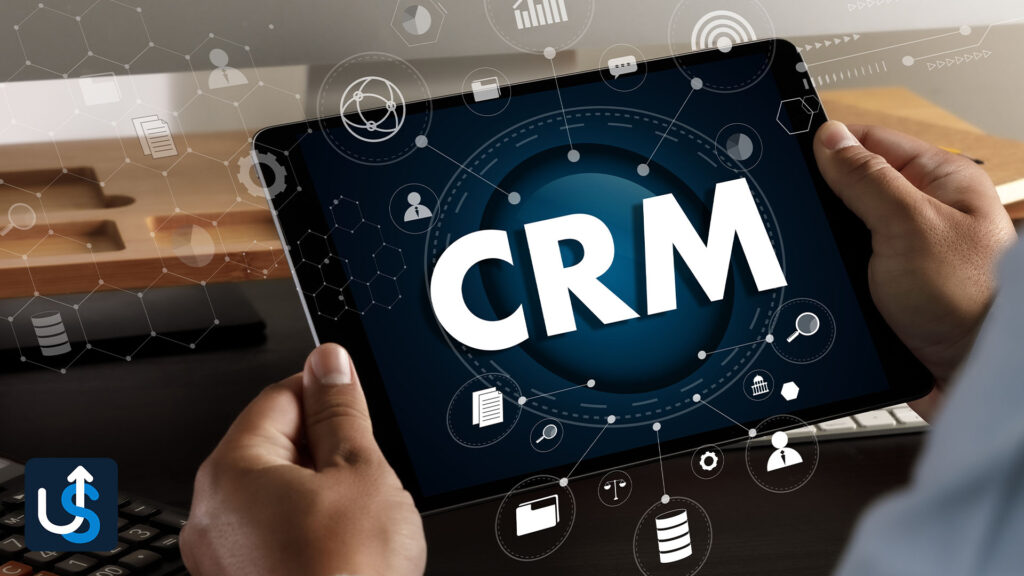
Customer Relationship Management (CRM) software is designed for use by a wide range of users, primarily in business and organizational settings, to manage interactions with current and potential customers. Key groups who benefit from CRM software include:
Sales Teams: CRM helps sales professionals track and manage customer interactions, sales opportunities, and client histories. This can lead to more efficient sales processes and better sales forecasting.
Marketing Departments: Marketers use CRM to understand customer preferences and behavior, manage campaigns, and generate leads. It can also help in segmenting customers for targeted marketing efforts.
Customer Service Teams: CRM tools can be used to track customer inquiries, complaints, and service requests, leading to more efficient resolution of customer issues and improved customer satisfaction.
Management and Executives: Senior managers use CRM software to track overall customer engagement, and sales performance, and to make informed business decisions based on customer data insights.
Small Business Owners: CRM can be vital for small businesses in managing customer data, understanding sales trends, and maintaining relationships without the need for large teams.
Freelancers and Consultants: Independent professionals often use CRM tools to manage their client interactions, keep track of projects, and ensure timely follow-ups.
Non-Profit Organizations: Non-profits can use CRM to manage donor relationships, track fundraising efforts, and organize outreach programs.
E-commerce Platforms: CRM systems help e-commerce businesses manage customer data, analyze buying patterns, and provide personalized shopping experiences.
CRM software is versatile and can be beneficial for any entity that needs to manage relationships with clients or customers, regardless of its size or industry. The key is selecting a CRM system that fits the specific needs and scale of the organization.

The significance of CRM cannot be overstated. It is not merely a customer database but rather a comprehensive customer engagement strategy. Using CRM, businesses can gain a complete view of the customer, providing invaluable insights into customer behavior and preferences. This intimate knowledge enables businesses to deliver personalized experiences, enhancing customer satisfaction and loyalty.

A common misconception is that CRM is only suitable for large companies with complex CRM platform needs. In reality, CRM for small businesses is a burgeoning domain, as flexible, cloud-based CRM systems allow even the smallest enterprises to benefit from sophisticated CRM tools with marketing automation, lead management, and sales tracking.
For small businesses, getting started with CRM can seem daunting, but CRM systems can also be very approachable. Stand-alone CRM solutions are often designed with the user in mind, offering simplified interfaces and essential features that get the job done without overwhelming users. The key is choosing a CRM system that scales with your business and aligns with your specific challenges and goals.
CRM is the backbone that supports the alignment of marketing and sales strategies. Without a CRM system, marketing teams lack a clear view of the customer and cannot track the effectiveness of marketing campaigns. CRM systems enable targeted marketing efforts by providing a detailed record of every customer interaction and proper management of customer data.
The intersection of CRM and marketing automation tool capabilities allows for high-level marketing campaigns that automatically respond to customer behavior, leading to improved conversion rates and customer engagement. CRM systems such as Upsurge are leading the charge, offering comprehensive marketing automation alongside their CRM functionalities.
The right time to adopt a CRM is before your current processes start to falter. If your networking or contact management systems are becoming cumbersome, or if you’re starting to miss opportunities to engage with leads or existing customers, it’s a sign that a CRM solution is needed. A mobile CRM also enables sales and marketing teams to access customer information on the go, which is becoming increasingly important in today’s fast-paced business environment.

Selecting the best CRM for your business means assessing your current customer relationship management needs against the features offered by various CRM vendors. Cloud-based CRM software is often a popular choice for its scalability and lower upfront costs, while on-premises CRM might be preferable for businesses with stringent data control needs.
A CRM system helps businesses maintain an up-to-date and centralized database of customer information, accessible by all departments. This centralization is essential for delivering a unified customer experience across different touchpoints. Furthermore, CRM systems compile customer feedback and interaction data, which is crucial for understanding customer needs and refining products and services.
The benefits of CRM extend far beyond organizing contacts. A well-implemented CRM can help increase customer satisfaction by ensuring that all interactions are consistent, personalized, and engaging. The goal of leveraging CRM solutions to orchestrate a seamless customer experience is to make each client feel uniquely valued.
Operating without a CRM system may result in missed connections and opportunities, fragmented customer information, and inefficient marketing campaigns. Without a CRM, the proper management of customer relationships becomes increasingly difficult, leading to potential revenue loss and hindered customer satisfaction.
A CRM system allows companies to automate and optimize their lead management and sales processes, ensuring that no opportunity slips through the cracks. CRM systems use powerful analytics to provide a granular view of the customer, facilitating the creation of highly targeted marketing campaigns and informed sales strategies.
From first contact to post-sale support, CRM helps guide the customer journey with precision. With a CRM system in place, businesses can anticipate customer needs, personalize interactions, and continuously nurture the relationship. This attentiveness translates into a fluid and memorable journey that encourages loyalty and referrals.

Adopting CRM technologies is an investment in the future. As the business landscape evolves, CRM provides the agility to adapt quickly. Whether through analytical CRM systems that predict customer trends or cloud-based CRM software providing global accessibility, CRM equips businesses with the tools to stay competitive in a rapidly changing world.
The use of cloud-based CRM software or Software as a Service (SaaS) models provides businesses with the flexibility to adapt to market shifts without overhauling their infrastructure. CRM systems can help improve the speed and efficiency of business operations, making them more agile in the face of change.
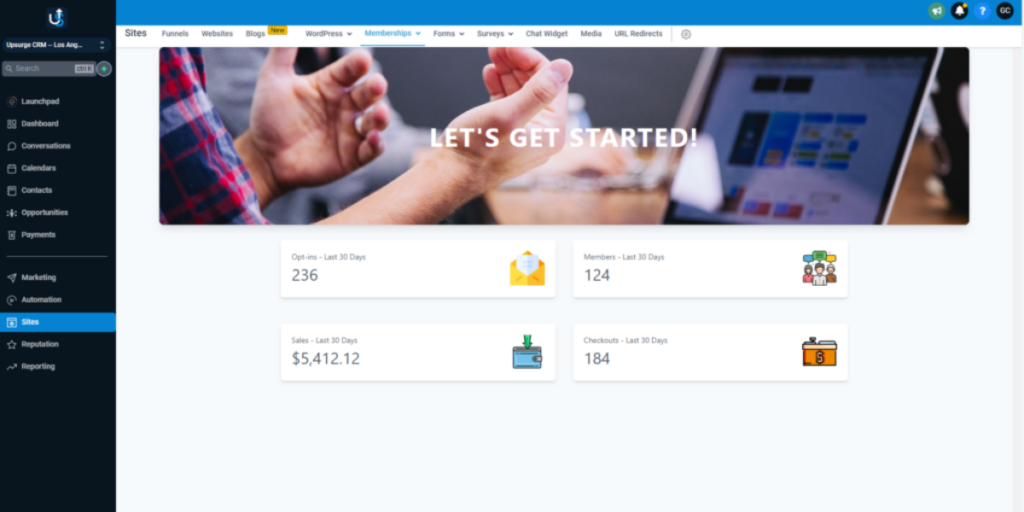
Upsurge CRM emerges as a standout choice, offering a unique blend of versatility, user-friendliness, and efficiency. Designed to cater to a wide array of business needs, Upsurge CRM stands out for its intuitive interface and comprehensive feature set. This segment of the guide will delve into how Upsurge CRM can transform the way businesses interact with their customers, streamline processes, and drive growth.
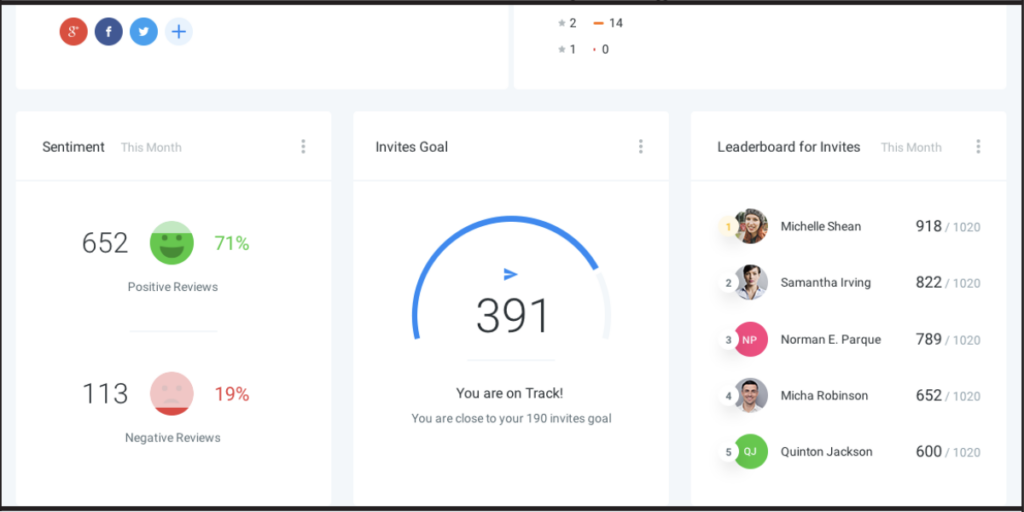
Intuitive Contact Management: Seamlessly organize and swiftly access customer data, facilitating effortless relationship building and personalization.
Strategic Sales Management: Efficiently track deals and harness predictive sales forecasting to drive unparalleled growth and revenue optimization.
Precision Marketing Automation: Elevate your marketing game with the ability to craft highly targeted campaigns that deeply resonate with your audience, supercharging your marketing effectiveness and ROI.
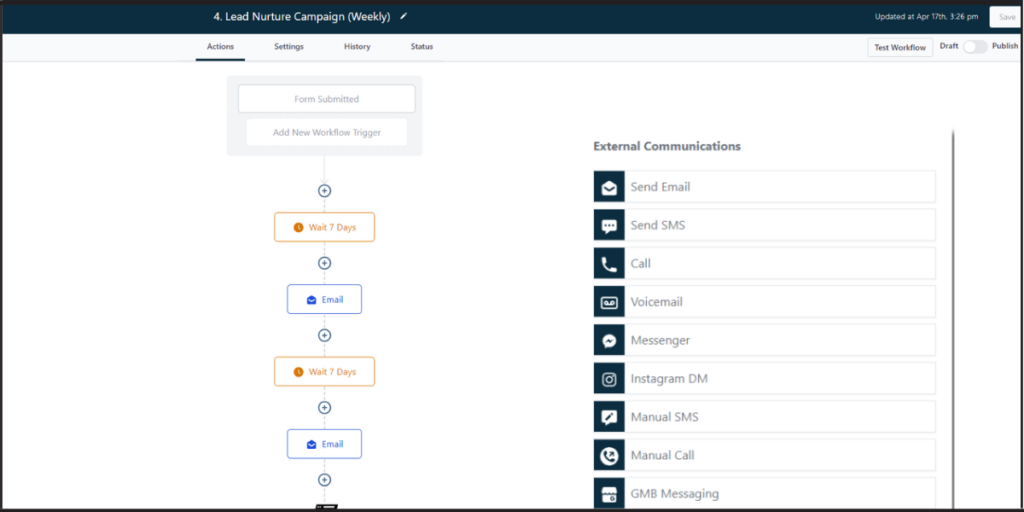
Versatility: Whether you’re a small business or a large enterprise, Upsurge CRM adapts to your unique needs, offering tailored solutions that align perfectly with your goals.
Seamless Integration: Experience seamless harmony with your existing tools, ensuring uninterrupted business operations and a smooth flow of data across your organization.
Anywhere Access: Embrace the power of cloud-based accessibility, granting you the flexibility to work on the go in today’s dynamic business landscape.
Exceptional Support: Count on our dedicated customer service team for a hassle-free journey from initial implementation to triumphant success. We’re here to ensure your experience with Upsurge CRM is nothing short of exceptional.
Customer Relationship Management (CRM) is a vital strategy for businesses of all sizes. CRM software streamlines customer data management, enhances engagement, and aligns marketing and sales efforts. It’s not limited to large corporations; even small businesses benefit from its flexibility. Running a business without CRM can lead to missed opportunities and inefficiencies, while adopting CRM adds significant value, ensuring a personalized customer journey and future-proofing operations.
Ready to elevate your business with CRM? Contact us today to explore the benefits of UpSurge CRM and take your customer relationships to the next level.

The Real Benefits of Contact Management with CRM for Collecting Customer Data Managing and leveraging customer information has become a foundational aspect of success…
Can a CRM Really Automate My Sales Follow-Ups and Boost My Small Business Revenue? Small businesses face increasing pressure to maintain consistent communication with…
Best CRM Software for Sales Prospecting: Transform Your Sales Prospecting Struggling to turn cold leads into paying customers? You’re not alone. In today’s competitive…